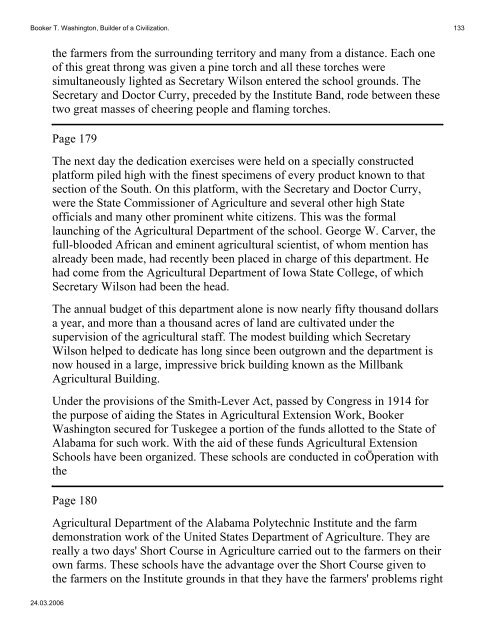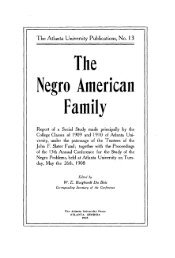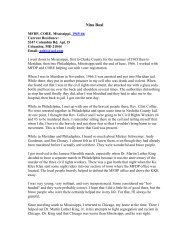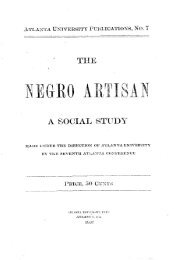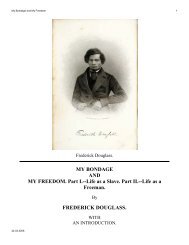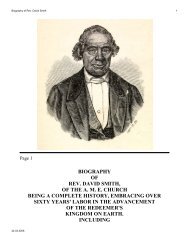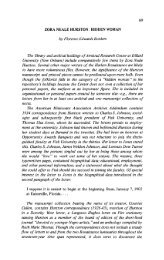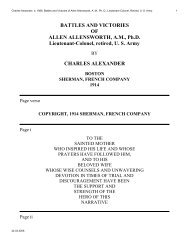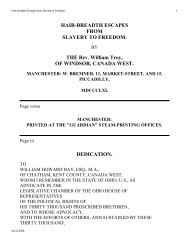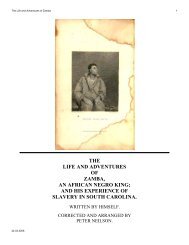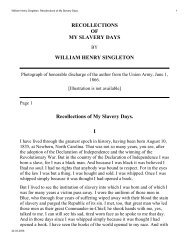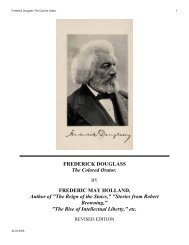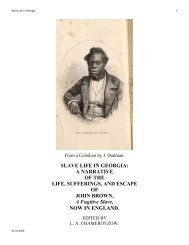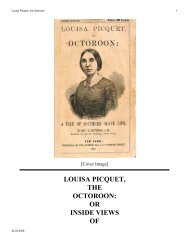Booker T. Washington, Builder o - African American History
Booker T. Washington, Builder o - African American History
Booker T. Washington, Builder o - African American History
You also want an ePaper? Increase the reach of your titles
YUMPU automatically turns print PDFs into web optimized ePapers that Google loves.
<strong>Booker</strong> T. <strong>Washington</strong>, <strong>Builder</strong> of a Civilization. 133<br />
the farmers from the surrounding territory and many from a distance. Each one<br />
of this great throng was given a pine torch and all these torches were<br />
simultaneously lighted as Secretary Wilson entered the school grounds. The<br />
Secretary and Doctor Curry, preceded by the Institute Band, rode between these<br />
two great masses of cheering people and flaming torches.<br />
Page 179<br />
The next day the dedication exercises were held on a specially constructed<br />
platform piled high with the finest specimens of every product known to that<br />
section of the South. On this platform, with the Secretary and Doctor Curry,<br />
were the State Commissioner of Agriculture and several other high State<br />
officials and many other prominent white citizens. This was the formal<br />
launching of the Agricultural Department of the school. George W. Carver, the<br />
full-blooded <strong>African</strong> and eminent agricultural scientist, of whom mention has<br />
already been made, had recently been placed in charge of this department. He<br />
had come from the Agricultural Department of Iowa State College, of which<br />
Secretary Wilson had been the head.<br />
The annual budget of this department alone is now nearly fifty thousand dollars<br />
a year, and more than a thousand acres of land are cultivated under the<br />
supervision of the agricultural staff. The modest building which Secretary<br />
Wilson helped to dedicate has long since been outgrown and the department is<br />
now housed in a large, impressive brick building known as the Millbank<br />
Agricultural Building.<br />
Under the provisions of the Smith-Lever Act, passed by Congress in 1914 for<br />
the purpose of aiding the States in Agricultural Extension Work, <strong>Booker</strong><br />
<strong>Washington</strong> secured for Tuskegee a portion of the funds allotted to the State of<br />
Alabama for such work. With the aid of these funds Agricultural Extension<br />
Schools have been organized. These schools are conducted in coÖperation with<br />
the<br />
Page 180<br />
Agricultural Department of the Alabama Polytechnic Institute and the farm<br />
demonstration work of the United States Department of Agriculture. They are<br />
really a two days' Short Course in Agriculture carried out to the farmers on their<br />
own farms. These schools have the advantage over the Short Course given to<br />
the farmers on the Institute grounds in that they have the farmers' problems right<br />
24.03.2006


